Honda Odyssey Recalls: Is Yours on the List?

The Honda Odyssey was introduced to the North American market in the 1995 model year as a family hauler based on the Accord platform. There have been five generations of this minivan.
Thanks to the trove of data available on NHTSA’s website, we have compiled a list of recalls for this model. Data from the organization is available for all model years of the Honda Odyssey. Here is all the available information on Odyssey recalls, taken from the NHTSA website.
1995 – 1998 Honda Odyssey Recalls
1.) Ball Joints (issued May 1999). Models affected: 1997 – 1998. Campaign #99V069000
– This condition would result in vehicle deceleration and a sudden loss of power.
2.) Ignition Switch (issued May 2002, October 2003). Models affected: 1997 – 1999. Campaign #02V120000 & 03V423000
3.) Aftermarket Combination Lamps (issued April 2009). Models affected: 1995 – 1998. Campaign #09E012000
1999 – 2004 Honda Odyssey Recalls
1.) Remote Door Control (issued June 1999). Models affected: 1999. Campaign #99V159000
2.) Air Intake Resonator (issued June 1999). Models affected: 1999. Campaign #99V157000
3.) Sliding Door Latch (issued June 1999, April 2000). Models affected: 1999 – 2000. Campaign #99V158000, 00V119000
– An improperly latched door could open unexpectedly while the vehicle is in motion.
4.) Frame Welds (issued December 1999). Models affected: 2000. Campaign #99V339000
– The missing welds might affect the occupant protection performance in a collision.
5.) Wire Harness (issued February 2000). Models affected: 1999 – 2000. Campaign #00V030000
6.) Dimmer Control (issued July 2000). Models affected: 1999 – 2000. Campaign #00V183000
7.) Ignition Switch (issued May 2002, October 2003). Models affected: 1997 – 1999. Campaign #02V120000 & 03V423000
8.) Timing Belt/Water Pump (issued August 2002). Models affected: 2002. Campaign #02V226000
9.) Automatic Transmission (issued April 2004). Models affected: 2002 – 2004. Campaign #04V176000
– Gear failure could result in transmission lockup, which could result in a crash.
10.) Passenger Frontal Air Bag Inflator May Rupture (issued November 2014, June 2015, May 2016). Models affected: 2002 – 2004. Campaign #14V700000, 15V370000, 16V344000
– An inflator rupture may result in metal fragments striking the vehicle occupants resulting in serious injury or death.
11.) Driver’s Frontal Air Bag May Rupture (issued May 2015). Models affected: 2002 – 2004. Campaign #15V320000
– An inflator rupture may result in metal fragments striking the vehicle occupants resulting in serious injury or death.
12.) Improperly Installed Passenger Air Bag (issued April 2018). Models affected: 2002 – 2004. Campaign #18V268000
– An incorrectly installed air bag may deploy improperly in the event of a crash, increasing the risk of injury.
ALSO SEE: 2018 Honda Odyssey Review
2005 – 2010 Honda Odyssey Recalls
1.) Honda/Rear Wheel Speed Sensors (issued November 2004). Models affected: 2005. Campaign #04V536000
2.) Steering Column (issued February 2005). Models affected: 2005. Campaign #05V039000
– Loss of steering control can cause a vehicle crash without prior notice.
3.) Fuse Box (issued April 2005). Models affected: 2005. Campaign #05V132000
4.) Frontal Air Bag Impact System (issued August 2005). Models affected: 2005. Campaign #05V344000
– Front impact sensor failure could cause a delay in, or loss of, frontal air bag deployment, which can increase the risk of injury in a frontal crash.
5.) Fuel Pump Relay (issued March 2007). Models affected: 2005. Campaign #07V097000
6.) Front Brake Hoses (issued February 2009). Models affected: 2009. Campaign #09V057000
– Drivers would not be aware of brake system failure and braking capability would not be possible, increasing the risk of a crash.
7.) Power Liftgate Systems (issued February 2010). Models affected: 2005. Campaign #10V055000
8.) SOFT BRAKE PEDAL/BRAKING PERFORMANCE (issued March 2010). Models affected: 2007 – 2008. Campaign #10V098000
– If the owner does not have any brake service or maintenance performed over a period of months or years, the system can continue to accumulate enough air to affect braking performance, increasing the risk of a crash.
9.) Brake Master Cylinder (issued October 2010). Models affected: 2005 – 2007. Campaign #10V504000
– A leak of brake fluid could lead to a degradation in braking performance.
10.) Power Liftgate Gas Struts (issued February 2012). Models affected: 2008 – 2009. Campaign #12V062000
– Struts with diminished performance can increase the risk of personal injury.
11.) Brakes may Unexpectedly Apply (issued November 2013). Models affected: 2007 – 2008. Campaign #13V500000
– The vehicle may suddenly and unexpectedly brake hard, and without illuminating the brake lights, increasing the risk of a crash from behind.
12.) Fuel Pump Cover may Crack and Leak Fuel (issued March 2014). Models affected: 2005 – 2010. Campaign #14V112000
– A fuel leak increases the risk of a fire.
13.) Aftermarket Fuel Pump may give False Fuel Readings (issued July 2014). Models affected: 2005 – 2010. Campaign #14E049000
ALSO SEE: 2018 Honda Odyssey Pros and Cons
2011 – 2017 Honda Odyssey Recalls
1.) Front Door Glass (issued March 2011). Models affected: 2011. Campaign #11V181000
2.) Windshield Wiper Failures (issued March 2011). Models affected: 2011. Campaign #11V180000
3.) Front Suspension Damper Bolt (issued December 2011). Models affected: 2012. Campaign #11V602000
– If the nut loosens, the front hub assembly would only be attached by one bolt, resulting in a loss of steering, increasing the risk of a crash.
4.) Driver’s Airbag Module may be Missing Rivets (issued January 2013). Models affected: 2011 – 2013. Campaign #13V016000
– The absence of more than one rivet could alter the performance of the driver’s airbag during deployment. This could potentially increase the risk of injury during a crash.
5.) Premature Engine Piston Wear (issued August 2013). Models affected: 2013. Campaign #13V382000
6.) Passenger’s Side Curtain Air Bag may not Deploy (issued April 2014). Models affected: 2014. Campaign #14V175000
7.) Fuel Tank May Have Insufficient Welds (issued June 2016). Models affected: 2015 – 2016. Campaign #16V417000
– A fuel leak in the presence of an ignition source may result in a fire.
8.) Second Row Outboard Seats may Stay Unlocked (issued December 2016). Models affected: 2011 – 2016. Campaign #16V933000
– An unlocked second-row outboard seat increases the risk of injury to the seat occupant during a crash.
9.) Seat Adjuster may Stick Unlocked (issued December 2016). Models affected: 2016. Campaign #16V932000
10.) Brake Shift Interlock (issued December 2016). Models affected: 2012 – 2013. Campaign #13V143000
– If the gear selector is moved from the park position without pressing the brake pedal it can allow the vehicle to roll away, increasing the risk of a crash.
11.) Second Row Seats may Tip Forward when Braking (issued November 2017). Models affected: 2011 – 2017. Campaign #17V725000
– If the seat tips forward during braking, it can increase the risk of injury.
12.) Second Row Seats may Tip Forward when Braking (issued November 2017). Models affected: 2011 – 2017. Campaign #17V725000
13.) Walk-In Seatbacks May Stay Unlatched (issued March 2018). Models affected: 2014 – 2016. Campaign #18V170000
– An unlocked second row left outboard seatback increases the risk of injury to the seat occupant during a crash.
2018+ Honda Odyssey Recalls
1.) Third Row Center Seat Belt may not Latch (issued June 2017). Models affected: 2018. Campaign #17V397000
– If in the event of a crash, the seat belt cannot restrain the occupant they have an increased risk of being injured.
You may click here to find out if your specific Honda Odyssey was affected by any recalls. The page at that link also offers detailed information about the recalls listed above.
Discuss this article on our Honda Odyssey Forum

Living in rural Canada, Matthew has immersed himself in car culture for over 30 years and relishes the thought of a good road trip. A certified gearhead, he enjoys sharing his excitement about cars and is very pleased to contribute at AutoGuide. Matthew is a member of Automotive Journalists Association of Canada (AJAC).
More by Matthew Guy














































































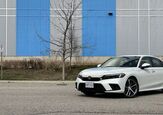
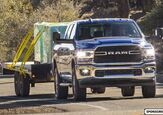







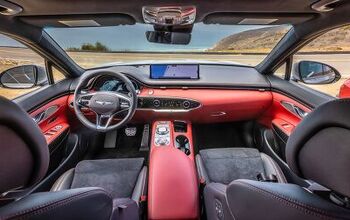


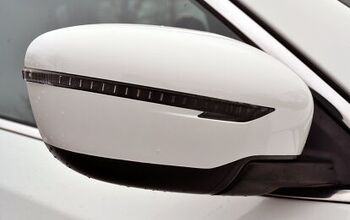
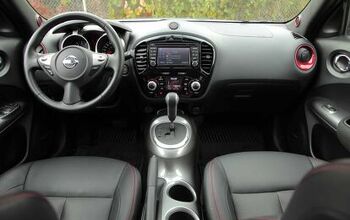

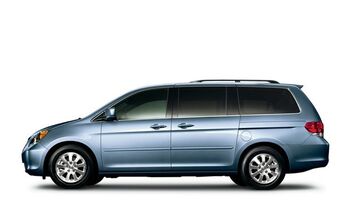
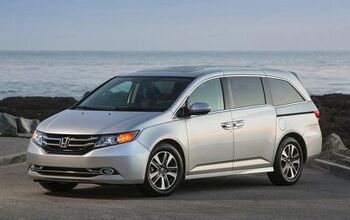



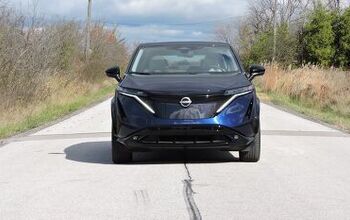
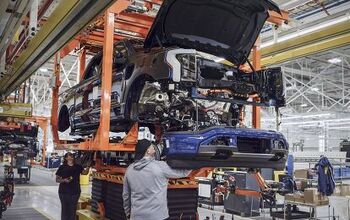
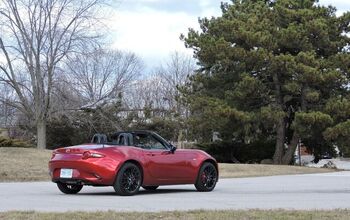

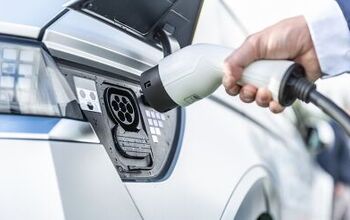


Comments
Join the conversation